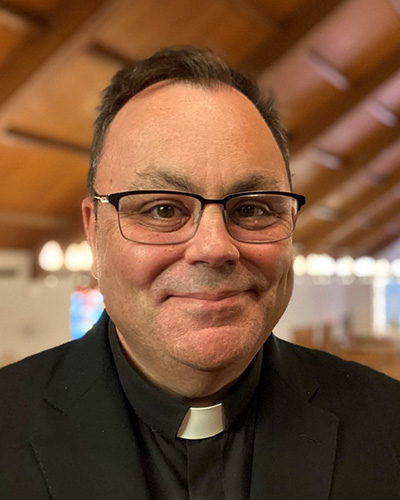“I swear by myself, declares the LORD, that because you acted as you did in not withholding from me your beloved son, I will bless you abundantly.”
For both Christians and Jews, this iconic story of Abraham’s willingness to sacrifice his son Issac is problematic. Why would the Lord God ask his faithful servant Abraham to slaughter his long-awaited son? Furthermore, why would Abraham be so willing to do so?
For both Jews and Christians, Abraham stands as a symbol of fidelity, one who doesn’t count the cost in his willingness to be faithful to the covenant relationship. For Christians, an additional comprehension began to be developed in the early Church. If Abraham’s sacrifice of Isaac was to be rightly understood, it must be seen as pointing to Christ and the church. Like Isaac, Christ was bound, He was led to the cross, He suffered silently, He bore the wood of the cross as Isaac bore the wood for the fire. The only difference is that Christ suffered, and Issac was spared.
In a line omitted from today’s first reading, the passage states that upon gathering the wood, Issac notes that the fire and the wood for the sacrifice are ready but asks where the sheep to be sacrificed is. Abraham answers, with a Hebrew phrase, “Yahweh-yireh” meaning “the Lord will provide” the sacrifice. Through the lens of Christianity, we have deeper and more complete answers to the questions that arise from the experience of Abraham, Issac, and God. This encounter is not just an example of fidelity to God, but a prophetic foreshadowing to what God the Father will do through the sacrifice of God the Son.
While today’s verses focus on the fidelity of Abraham, this passage from the Book of Genesis will be proclaimed in its entirety at the Easter Vigil. I suggest that as we reflect on today’s verses, we use them to prepare us to hear them again in the context of the celebration of the resurrection. Abraham’s radical fidelity is an opportunity to reflect on what we are holding back from God. Where and when are we agreeing to be faithful, but with limitations? What have we chosen to give up for Lent, and what are we choosing not to? What teachings and moral constructs of the church do we uphold, and which ones do we reject? Who do I express Christian charity to, and to whom do I withhold it?
In the fulfilment of Abraham’s prophetic words, that the Lord will provide the sacrifice, we see that the response to our fidelity is the sacrificial love of Jesus Christ. Some of the early fathers of the Church imagined Issac not as a naive child but as a mature adult who willingly participates in the Father’s mission. Issac and Abraham model the fidelity of God, Father, and Son – the father who willingly sacrifices his son, and the son who submits. If God himself does not withhold anything from us, who are we to withhold from him? Let this be our Lenten question.
LENTEN MONDAY – This Monday, we begin our special evenings of Mass and guest presiders. This Monday, Fr. Steven McClernon, newly-ordained priest and associate pastor of the Beach Catholic communities of Long Beach and Point Lookout, will be with us. Please note the modified schedule of our Monday evenings. The Miraculous Medal Novena will be celebrated at 7:15 pm. Mass will begin at 7:30 pm. Adoration of the Blessed Sacrament will immediately follow mass, and the opportunity for confessions will take place during Adoration.
SOUP SUPPER – This Wednesday at 6:00 pm, we will once again host a Lenten Soup Supper. The meal will take place in the school and be an opportunity for us to enjoy a simple meal as a community of faith while reflecting on the disciplines of Lent.
SACRED ART – I thank Fr. Anthony for allowing us to display the wood carved crucifix in our sanctuary during Lent. It is the work of an artist who lives in the Ecuadorian rainforest. He gifted the crucifix to Fr. Anthony in gratitude for the promotion of his work.

